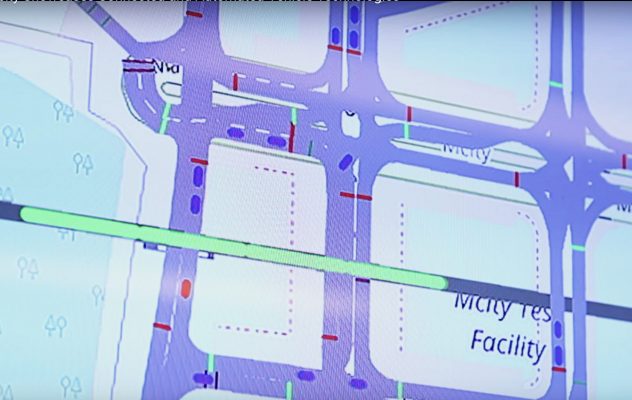
An image of the screen in the Michigan Traffic Lab while a virtual train (in green) travels through a rail crossing at Mcity. Real (red) and simulated vehicles (blue) react. (Screen capture from a video by Mike Wood, Mcity)
Augmented reality technology can accelerate testing of connected and automated vehicles by 1,000 to 100,000 times, and reduce additional testing costs — beyond the price of physical vehicles—to almost zero, according to a new white paper published by Mcity in November.
This unique testing methodology is outlined in a new white paper authored by Henry Liu, professor of civil and environmental engineering, and research professor at the U-M Transportation Research Institute. “In order for the public to accept and widely adopt driverless vehicles we must be able to prove they are safe and trustworthy,” said Liu.
Augmented reality combines the real world with a virtual world to create a faster, more efficient and economical approach to testing connected and automated vehicles. Mcity is a U-M led public-private partnership working to advance the development of connected and automated vehicles.
